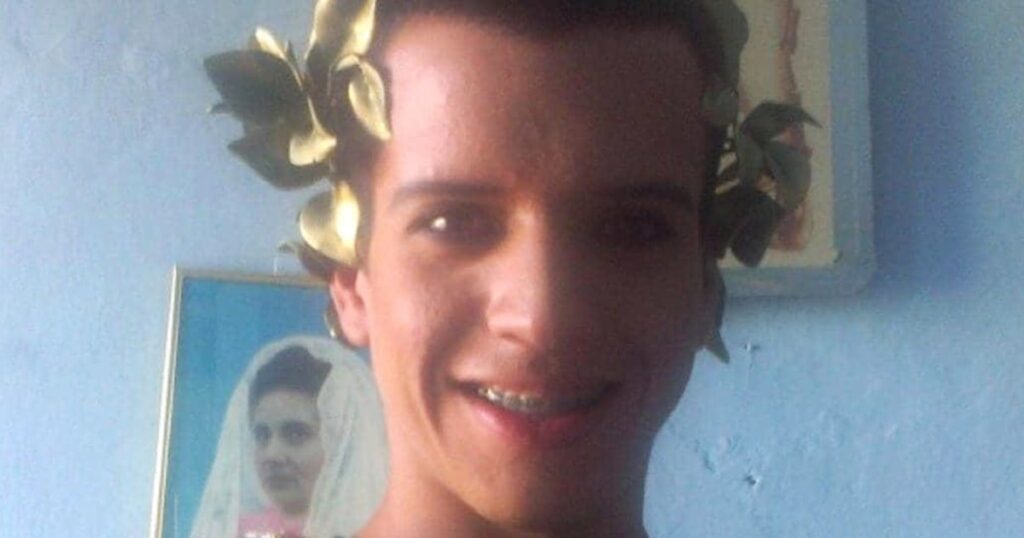The story of Andry Hernandez Romero, a Venezuelan makeup artist, has brought significant attention to current immigration practices in the United States, stirring ongoing discussions about human rights and the intersection of identity and law enforcement. Deported to El Salvador amidst claims of gang affiliation due to his tattoos, Hernandez’s case has raised alarms regarding the use of tattoos as reliable identifiers for gang membership. This article explores the implications of this case on the broader framework of U.S. immigration policy and its commitment to human rights.
Andry Hernandez Romero: A Life in Art and Struggle
Born in a small Venezuelan town called Capacho, Andry Hernandez displayed a passion for the arts from an early age. He was deeply involved in local festivals, particularly the vibrant Three Kings Day celebrations. Friends recall his enthusiasm for theater and costume design, with one stating he dedicated his life to arts and culture. Tragically, like many Venezuelans, Andry faced challenges that compelled him to flee his homeland.
After relocating to Caracas, he pursued a professional career as a makeup artist for a state-run television station. However, Andry’s identity as a gay man subjected him to persistent discrimination, forcing him to make the difficult decision to seek refuge in the United States. Intent on escaping from persecution and violence, he embarked on a long and treacherous journey north.
The Asylum Process and the Misuse of Tattoos
In May, Andry arrived at the U.S.-Mexico border, where he legally presented his asylum claim under President Biden’s CBP One program. He was granted a credible fear interview, which is an essential step in seeking asylum. However, border officials placed him in detention, primarily based on a misinterpretation of his tattoos. Particularly, the crowns tattooed on his wrists led immigration authorities to associate him with the criminal gang Tren de Aragua.
“The crown has been found to be an identifier for a Tren de Aragua gang member,” reported an immigration officer, signifying a dangerous trend in how tattoos are perceived.
Experts have criticized this representation, pointing out that tattoos alone can hardly serve as a reliable means of identifying gang membership. This is especially concerning for a creative individual whose tattoos held personal significance connected to cultural identity rather than crime.
Rushed Deportations under the Trump Administration
In March, Andry was one of 238 Venezuelan migrants deported to El Salvador under the Alien Enemies Act, a controversial decision that bypassed traditional immigration protocols. The law, originally established in 1798, has not been invoked for generations and is primarily meant for wartime scenarios. This unprecedented use of the act set a startling precedent for how migration issues are handled in the context of national security.
The existing legal framework claims to protect individuals from wrongful deportation, especially those fleeing persecution. However, with the advent of such rapid expulsions lacking proper judicial oversight, many people like Andry now find themselves in precarious situations, facing dire consequences without any legal recourse.
The Role of Private Contractors in Immigration Enforcement
The involvement of private contractors in the deportation process, particularly in identifying gang affiliations, raises significant ethical questions about accountability and reliability. Charles Cross Jr., a former police officer with a troubled history, played a key role in Andry’s deportation based on a dubious report regarding his tattoos. This connection to private prison contractors as a determining factor in the deportation of vulnerable individuals introduces an alarming layer of risk, as their methods of evaluation can often lack integrity.
“The government is using suspected gang ties as the sole reason for deportation, which raises serious concerns about the effectiveness and fairness of these evaluations.”
The reliability of tattoo-based gang identification methods has been widely questioned. Experts assert that they do not accurately reflect membership or criminal behavior, with many indicating that such practices could lead to wrongful deportations and put lives at risk. Furthermore, it creates a chilling atmosphere where creativity and expression could bear unwarranted consequences.
Fears for Andry’s Safety in CECOT
Upon being sent to El Salvador, Andry was placed in the notoriously brutal Terrorism Confinement Center (CECTO), known for its harsh treatment of inmates. Family members and advocates raise serious concerns about Andry’s treatment, particularly because he is an openly gay man in a prison environment that can be extremely hostile to individuals with his identity.
“I think about him every day; I cry about him every day,” Andry’s mother, Dolores Alexis Romero de Hernandez, expressed in a poignant statement.
The apprehension over the lack of communications with him since the deportation contributes to a growing anxiety among his supporters and family. They fear that he may suffer in silence without proper advocacy or assistance available to him in a foreign prison.
Legal and Ethical Implications
Andry’s case is emblematic of a broader crisis within the U.S. immigration system that requires urgent address. The intersection of law enforcement practices, personal identity, and human rights is a delicate balance that must be navigated with care and respect. The implications of hastily deporting individuals without comprehensive oversight not only violate legal protocols but also disregard their human dignity.
The implications of Andry’s story underline the necessity for reforming deportation practices, including a reevaluation of how tattoos are perceived in legal contexts and further scrutiny on the role of private contractors within immigration enforcement. This incident is more than a singular case; it is a reflection of systemic issues needing resolution.
Conclusion: Seeking Justice for Andry and Others
As Andry Hernandez Romero’s story unfolds, it becomes increasingly clear that changes must occur. Advocacy for immigrant rights and protection of vulnerable populations must be prioritized, ensuring no one faces wrongful deportation due to misinterpretation of identity markers like tattoos.
This case serves as a poignant reminder of the cost of disregarding human rights in the name of national security. Without reform and respect for the rule of law, many more will fall victim to a system that seems increasingly disconnected from human dignity.

